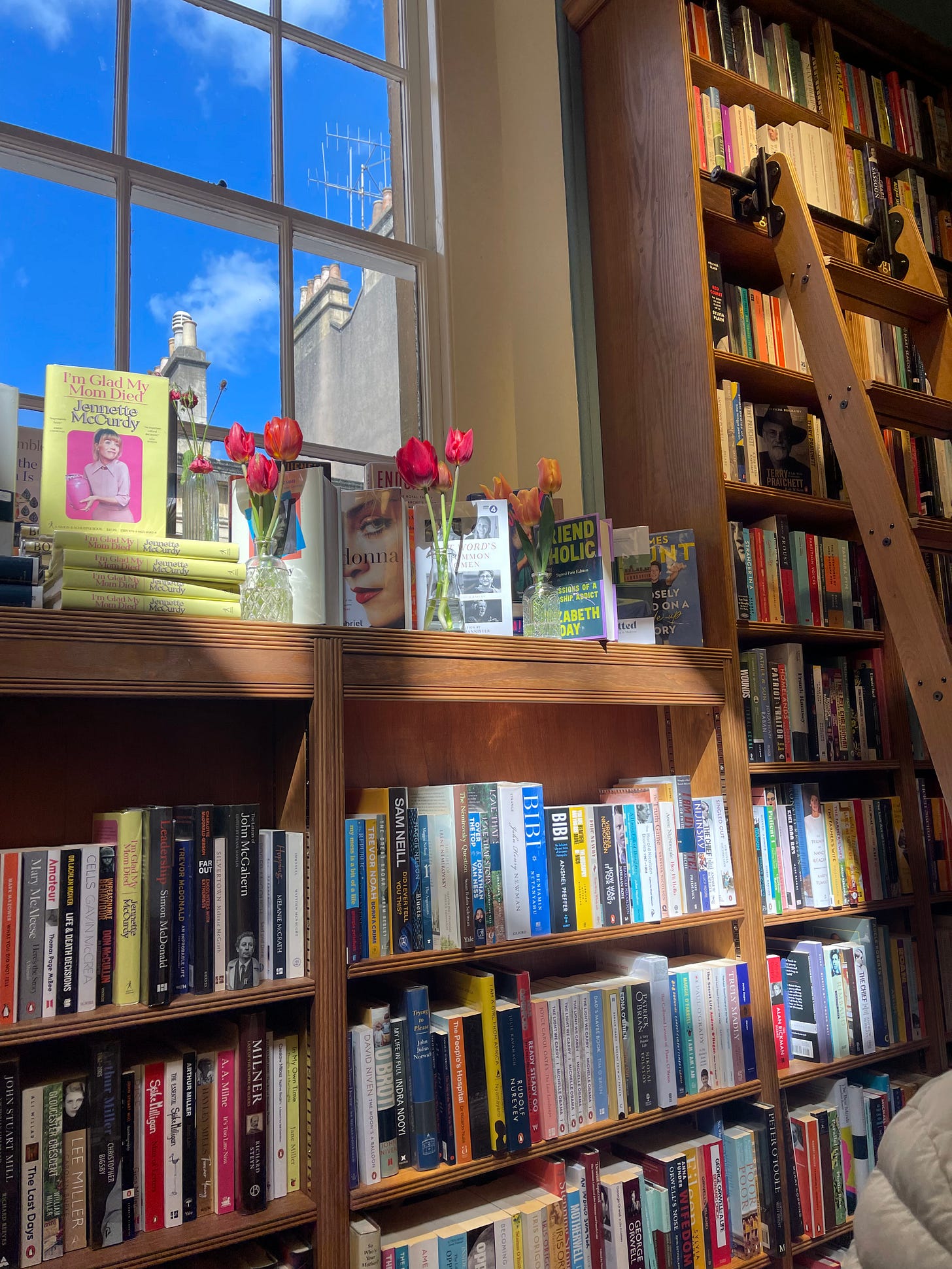welcome to the first installment of ‘consider this’, an ongoing series in which i’ll be raising questions about culture, social media, and concepts that continually perplex me. these essays stand only as food for thought, and food tastes better shared. i invite you to ruminate in the comments with me, ideally over a hot (or cold!) coffee.
to support coffee w/ constanze, consider pledging or sharing my publication with someone you love ♥️
love is a delicious paradox. it’s ubiquitous yet elusive; it defies understanding while embodying it. love wears countless hats, uses infinite names, and connects us with strangers in ways we can never truly explain.
mark chapman, author of the five love languages: how to express heartfelt commitment to your mate, tried defining love in terms of a five-category framework. such a narrow selection serves to identify the flavor of affection we prefer to receive from others; the same kind that we prefer to give.
the book’s concepts spread like wildfire and merged swiftly into our western cultural vocabulary. now we all have a love language (or two), simply by the merit of loving in the first place.
if you’ve ever scanned a list of these—being words of affirmation, quality time, gifts, acts of service, and touch—maybe you’ve thought to yourself:
i like all of these. i must be multilingual.
maybe, then, you poured over your core memories to see which shows of love stand the strongest.
my fruitless goose-chase always starts in a mildewed, east-seattle basement where my longest-lasting friendship was formed. this sixth-grade sleepover was unrivaled: the two of us scribbled out short stories on spiral notebooks for hours, each centered around the discovery of a magical apple orchard.
we read out loud what we’d written every few paragraphs, spinning narratives in wild, dark, and romantic directions. falling asleep around 4 in the morning, i remember waking up with the pen i was using stuck firmly to my cheek.
if the memory of this night were an object, it’d be permanently kept in a safe.
so… quality time must be what i love most?
a year or so later, my middle school crush asked to hear about the short stories i wrote during class. that was wildly exciting at the time, and the thrills only heightened when he gave me a pen for my birthday months later to ‘write stories with’. the doctor’s office pen was wrapped hastily in loose-leaf paper and Scotch tape, bestowed with childlike confidence. my naive, hopeful self was convinced he must’ve known me better than i thought.
am i a gift-oriented person, then?
i must be: i almost exclusively give books out as presents for christmases, birthdays, and condolences. i used to carry around a collection of pablo neruda love poetry for the sole purpose of giving it to the man i fell in love with. now it resides in a drawer in S’s office, where it was always meant to be kept.
even still, nothing hits like a compliment on a poem or short story i write. thoughtful sentiments about my writing dazzle me for decades, and i roll each quote over and over in my mind when i’m wrestling with essays like this one.
it’s at this point when i realize the only similarity i can find is the fact that i love literature, and mr. chapman didn’t establish that as one of the five.
labeling various degrees of romantic / platonic thoughtfulness as ‘languages’ denotes an inherent learning curve to love: built-in barriers of the heart that can’t be torn down, only climbed (like rapunzel’s tower, or juliet’s orchard wall).
this can make it a useful lens: love languages highlight our lover’s innately unique personhood. learning their language, especially if it’s different from ours, could be the same as studying someone’s personality to better adore them, to account for all the idiosyncrasies that constitute their being. many disagreements could be curbed in knowing that a loved one is simply trying to show you love in their own unique way - just in a way that you don’t love.
love languages emphasize that understanding and attention are key to making any relationship work.
but beyond those positives, i’ve never been entirely convinced. i can’t accept that there’s only five classifications of loving actions, or that they’re truly distinct from one another.
i struggle to identify my preferences in a single evening alone: for example, if my fiancé and i go to an expensive restaurant on a date, and we swap deeply meaningful words of love (while sharing unforgettable food), am i enjoying 'words of affirmation’ or ‘quality time’ most? if he foots the bill, do i consider it an act of ‘gift-giving’? how could i possibly determine which one i’m appreciating most?
as a sort of personality test, love languages contribute to the narrative we tell ourselves about ourselves. in the above scenario, if i happened to align with words of affirmation closest, would i recognize the ‘quality time’ and ‘gift-giving’ aspects of the night for what they were? or would i miss their significance entirely, since they aren’t the love language i prioritize?
as constance grady suggested, relationships might fare better if all five love languages are acknowledged on a regular basis, as part of a healthy ‘love diet’. in that same vein, choosing one ‘ingredient’ for life isn’t sustainable: our desires and needs are subject to change depending on our day, life stage, and mood. no one can survive (happily) on one form of affection alone: to quote grady, “we love in many ways, not just one.”
i’m far from the only skeptic poking holes in this concept. like the myers-briggs personality test, there’s insubstantial evidence that either of these popular personality quizzes are effective or correct; they’re widely regarded as pseudoscience by psychologists.
the university of toronto published a study on chapman’s bestseller in january, showing no “strong empirical support for the book’s three central assumptions that (a) each person has a preferred love language, (b) there are five love languages, and (c) couples are more satisfied when partners speak one another’s preferred language.”
i don’t mean to shame anyone that takes stock in these concepts. maybe you really do have a love language, or perhaps the concept taught you about yourself. they could’ve even done for you what they’re advertised to do: bridge a gap of understanding between you and someone you love. however, for all their lapses in fact, perhaps we shouldn’t give them credence.
now please, tell me: what do you think?
-constanze







It reminds me of the whole 'personality type' trends... it can be fun (and occassionally useful) to categorise yourself, especially if it helps in communicating your needs or behaviours with others, but generally I don't think these categories are real as such. I think every relationship is built differently, and you should explore how the two of you work together rather than focus on things like this.
Thanks for sharing this article under my Note btw, I really enjoyed reading it!
I think that it’s important to step out of our comfort zones in relationships and put the other ahead of ourselves. Relationships are not a 50-50 give and take. They should be 100-100! In reality sometimes 0-100 or 0-0! The book helped me to look through my partner’s eyes. If I had read it earlier in my life maybe I wouldn’t have married 4 times! My take away from the book was that sometimes you just have to give and love anyway you can and get it right. (and sometimes move on when it’s really not right)